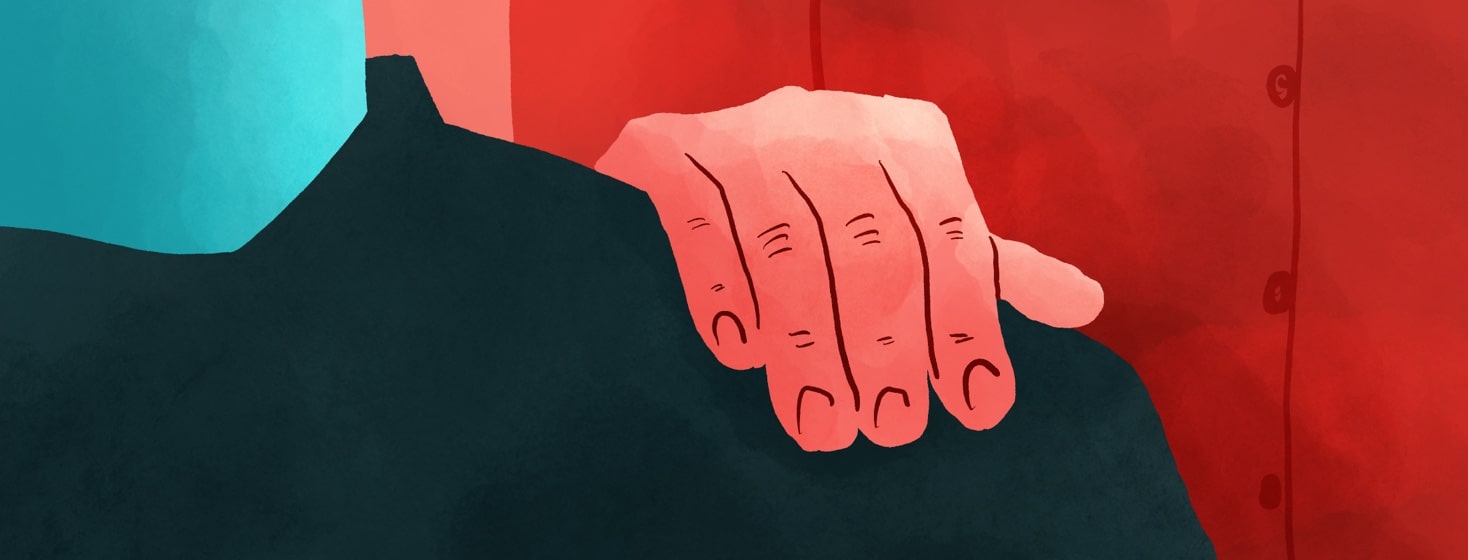What Does Caregiving Look Like for an AS Patient?
I never considered myself a caregiver to my husband, Keegan, until a couple of years ago. After all, the picture of caregiving is usually someone younger helping an older family member or friend in need. Or perhaps caregiving professionally at an assisted living home or nursing home. How could I, someone in my 20s, be a caregiver? Keegan needed help, but the image of caregiving just didn't match up to what you see on TV.
Instead, it's more dynamic and subtle. AS changes so frequently, that my caregiving changes with it. Sure, there have been more typical times like recovery after 2 hip replacements, but what about during a flare-up? Or outside of a flare-up? What does an AS caregiver do?
The easiest part for me is coordinating Keegan's care
Throughout our AS journey, I've been the notetaker and coordinator of insurance benefits, doctor appointments, and tracking what Keegan needs to do to stay healthy. Luckily Keegan's found great rheumatologists along the way, but at first, it was too overwhelming for him to do the research, understand the disease, and figure out the next steps. So I stepped in to help coordinate all of that. That way, Keegan could just focus on himself. Over time, I've become the go-to person to continue managing his care.
Honestly, I don't mind it. Keeping track of everything makes me feel like I'm helping with a disease that feels out of control. If there's one thing I can do as a caregiver, it's setting all the right steps up in place for Keegan and help present information to him rationally and calmly to help him make decisions. When we weren't sure about Keegan going on a biologic or whether to try medical marijuana, I Googled all the benefits and risks. I presented it back to Keegan without the doom and gloom stories often found online.
Then there's the helping as I'm needed each day
Day-to-day can look different. As I've written before, Keegan's AS is like a random mix of symptoms every day. Is it brain fog? Then Keegan and I need to sit down and write out to-do lists and coordinate with one another. Is it acute pain? Or is a weather front coming in? It's checking to make sure Keegan's set up with enough pain management medication. Or perhaps finding time in the day for Keegan to get an Epsom salt bath.
This up and down is exhausting for Keegan, but it's also exhausting for me. It means I'm constantly assessing Keegan, whether directly or indirectly, to understand his symptoms. How are they changing every hour? What can we get ahead of to prevent and manage his AS? If only there were an app to tell me exactly where Keegan's symptoms were at!
But then come the flare-ups, which aren't only tiring but heartbreaking
I think back to this summer after we drove 9 hours to the beach and the awful flare-up Keegan had. It was the worst I'd seen in years. I remember we called his doctor to get muscle relaxers, and I ran to the grocery store to get Epsom salt, Tylenol, and ibuprofen. I cried when I got home and realized how bad Keegan's flare-up was. And I wanted to seem so strong for him. I wanted him to see that I was keeping it together so he could relax and recover.
Flare-ups are like seeing a loved one caught in a burning building but you can't get them out. I could see the pain on Keegan's face. The fatigue that set in was extreme, and he could sometimes barely get a few sentences strung together coherently from the brain fog. No matter how many times I go through a flare-up beside Keegan, it will always be tough. These are more classic caregiving moments. The ones where I support Keegan by tracking medication use, bringing food to him, and finding his cane.
Caregiving to an AS patient isn't a stereotypical caregiver-patient relationship. Some days, weeks, or months, pass by easily. But some are agonizing and slow. It's easy to get burnt out in those moments, and it's crucial to remember that any help provides love and support to someone with AS.

Join the conversation